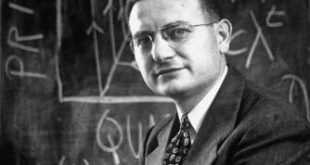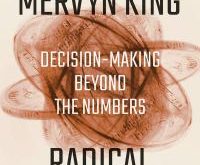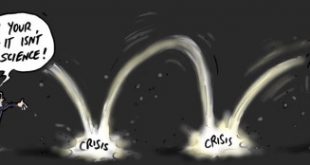from Jayati Ghosh Recently, mainstream economics has been forced to acknowledge some of the explicit and implicit forms of discrimination and bias that are rampant in the discipline, thanks in particular to some brave interventions by some women economists. The focus of these interventions has been on still-pervasive patriarchal and racist attitudes that are evident within the discipline in the Global North, particularly in the United States – such as the now-famous blog by Claudia Sahm:...
Read More »How many lives would have been saved if we had collaborated on vaccines with China?
from Dean Baker We know that Republican office holders are not allowed to say that Joe Biden won the election. Apparently there is a similar ban in place for news outlets when it comes to the question of the United States collaborating with China, and other countries, in developing vaccines against the pandemic. In recent days, there have been articles in several major news outlets about how China vaccinated close to 1 million people, under an Emergency Use Authorization, for vaccines...
Read More »Paul Samuelson and the ergodic hypothesis
from Lars Syll Paul Samuelson claimed that the “ergodic hypothesis” is essential for advancing economics from the realm of history to the realm of science. But is it really tenable to assume that ergodicity is essential to economics? The answer can only be – as I have argued here here here here and here – NO WAY! Obviously yours truly is far from the only scientist being critical of Paul Samuelson. This is what Ole Peters writes in a highly interesting article on Samuelson’s stance on the...
Read More »The Krugman boom: Don’t bank on It
from Dean Baker I have largely been in agreement with Paul Krugman in his assessment of the economy over the last dozen years or so, but I think in his latest column he let the promise of a post-Trump era get the better of him. Krugman notes that the distribution of effective vaccines should allow people to return to their normal lives. He argues that this will lead to a spending boom, as consumers have accumulated savings through the slump and will now be in a position to spend lots of...
Read More »“A primer for the perplexed”
from Peter Radford That’s the subtitle of Robert Skidelsky’s little book “What’s Wrong With Economics”?. A primer for the perplexed. With the U.S. election past us, I decided to start reading some of the books that had accumulated in my “to read” pile. Skidelsky being one of my favorite authors I started with his. The problem is that perplexity is insufficient to describe my usual emotion or state of mind whenever I engage with economics. So, here I am, a mere fifty or so pages in,...
Read More »Using ‘small-world’ models in a large world
from Lars Syll Radical uncertainty arises when we know something, but not enough to enable us to act with confidence. And that is a situation we all too frequently encounter … The language and mathematics of probability is a compelling way of analysing games of chance. And similar models have proved useful in some branches of physics. Probabilities can also be used to describe overall mortality risk just as they also form the basis of short-term weather forecasting and expectations about...
Read More »“Protecting Intellectual Property” against China means redistributing income upward
from Dean Baker The New York Times had an article discussing the prospects for U.S. trade relations with China during Biden’s presidency. At one point it tells readers: “Mr. Biden has given few details about his plans for U.S.-China relations, other than saying he wants to recruit American allies such as Europe and Japan to pressure China to make economic reforms, like protecting intellectual property.” Stronger and longer patent and copyright protections have redistributed enormous...
Read More »Tech platforms feel the heat
from C. P. Chandrasekhar In a move that was expected, the US Justice Department has filed an anti-trust lawsuit against internet search giant Google, alleging that it resorts to anti-competitive practices to ensure its dominance in the search engine space and, through that, over the related online advertising revenues. As a leading example the case cites the successful effort to exclude the competition through a deal, in place since 2005, in which Google pays Apple around $8-12 billion a...
Read More »Graduate education in economics
from Lars Syll Modern economics has become increasingly irrelevant to the understanding of the real world. In his seminal book Economics and Reality (1997) Tony Lawson traced this irrelevance to the failure of economists to match their deductive-axiomatic methods with their subject. It is — sad to say — as relevant today as it was twenty-three years ago. It is still a fact that within mainstream economics internal validity is everything and external validity nothing. Why anyone should be...
Read More »Lowering the bar on success: Megan McArdle on drug development
from Dean Baker Washington Post columnist Megan McArdle was anxious to tell readers that drug development in the pandemic has been a great success story. After all, look at all the treatments we have, and now it appears that Pfizer/BioNtech have developed a highly effective vaccine. What could be better than that? Well, first we need a bit of perspective. Yes, we place an enormous value on our health and our lives, so getting effective treatments and vaccines quickly are extremely...
Read More » Real-World Economics Review
Real-World Economics Review



